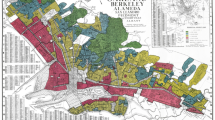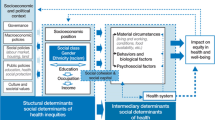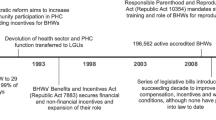Abstract
Background
First Nation residents within Personal Care Homes (PCHs) are the most vulnerable segment of First Nations society and are in need of continuing care. Recent conditions imposed through unilateral decision-making by the federal government are placing the existence and continued operations of PCHs in jeopardy.
Methods
This article documents the current state of First Nation PCHs in Manitoba. In January 2003, the federal Minister of Indian and Northern Affairs Canada (INAC) announced conditions with which First Nation PCHs must comply or face closure. For instance, none of the PCHs were licensed in accordance with provincial legislation. Such provincial licensing would enable them to access provincial funding. However, provinces are wary of licensing on-reserve PCHs, and First Nations are reluctant to come under provincial health authority. First Nations continue to press for recognition of their own jurisdiction to set standards which emphasize their own culturally-based responsibilities and rights.
Results
As of October 2003, on-reserve PCHs have undergone infrastructure assessments to determine upgrades required to meet provincial building codes and standards in preparation for licensing. The First Nations plan to develop their own standards and licensing. Conditional licensing would ensure that PCHs continued to operate while renovations are made and funding allocations worked out.
Conclusions
PCHs are a critical component in the spectrum of health care offered in First Nations communities. The imposition of conditions on the continued provision of federal funding to on-reserve PCHs is seen by First Nations as a restriction of the accessibility of culturally appropriate care for the most vulnerable segment of the First Nations population. Key elements in pursuing positive change include First Nations involvement in research and policy decision-making.
Résumé
Contexte
Les résidents des Premières nations vivant dans des foyers de soins personnels sont le segment le plus vulnérable de la société des Premières nations, et ils ont besoin de soins prolongés. Or, des conditions imposées récemment à la suite d’une décision unilatérale du gouvernement fédéral compromettent le fonctionnement et l’existence même des foyers de soins personnels.
Méthode
Nous avons documenté la situation actuelle des foyers de soins personnels des Premières nations du Manitoba. En janvier 2003, le ministère fédéral des Affaires indiennes et du Nord canadien (AINC) a énoncé des conditions que les foyers de soins personnels des Premières nations doivent respecter, sans quoi ils risquent la fermeture. à titre d’exemple, aucun de ces foyers ne possède une licence d’exploitation conforme à la loi provinciale. Une licence délivrée par le gouvernement provincial permettrait à ces foyers d’obtenir des fonds de la province. Cependant, les provinces hésitent beaucoup à délivrer des licences aux foyers dans les réserves, et les Premières nations résistent à l’idée de tomber sous la coupe des autorités de santé provinciales. Les Premières nations continuent à exiger que l’on reconnaisse leur propre compétence à établir des normes fondées sur des responsabilités et des droits adaptés à leur réalité culturelle.
Résultats
Depuis octobre 2003, les foyers de soins personnels dans les réserves font l’objet d’évaluations de leurs infrastructures visant à déterminer s’ils ont besoin d’être modernisés pour respecter les normes provinciales de sécurité de construction avant d’obtenir une licence. Les Premières nations entendent élaborer leurs propres normes et licences. En délivrant des licences conditionnelles, on permettrait aux foyers de soins personnels de continuer à fonctionner pendant que l’on apporte les rénovations nécessaires et que l’on détermine le financement auquel ils pourraient avoir droit.
Conclusions
Les foyers de soins personnels sont un élément essentiel de l’éventail des soins de santé offerts dans les collectivités des Premières nations. Celles-ci considèrent que l’imposition de conditions au maintien du financement fédéral des foyers dans les réserves restreint l’accès à des soins adaptés à la réalité culturelle du segment le plus vulnérable de la population des Premières nations. La participation des Premières nations à la recherche et à la prise de décisions stratégiques sont les éléments clés d’un changement favorable de la situation.
Similar content being viewed by others
References
Cook C. Jurisdiction and First Nation Health and Health Care. [Published Masters Thesis] Winnipeg: University of Manitoba, 2003.
INAC Departmental Audit & Evaluation Branch, Prairie Research Associates. Evaluation of Adult Care Services. Winnipeg, May 2003.
Manitoba First Nations Personal Care Homes Networking Group. Reaching Provincial Parity: Providing Quality Personal Care Homes for First Nations Elders. Winnipeg, March 2001.
Martens PJ, Bond R, Jebamani LS, Burchill CA, Roos NP, Derksen SA, et al. The Health and Health Care Use of Registered First Nations People Living in Manitoba: A Population-based Study. Winnipeg: Manitoba Centre for Health Policy, 2002.
AMC, MFN-CAHR. Manitoba First Nations Regional Health Survey: Final Report. Winnipeg, September 1998.
Author information
Authors and Affiliations
Consortia
Corresponding author
Rights and permissions
About this article
Cite this article
Roscelli, M., Sioux Valley Dakota Nation. Political Advocacy and Research Both Needed to Address Federal-Provincial Gaps in Service: Manitoba First Nations Personal Care Homes. Can J Public Health 96 (Suppl 1), S55–S59 (2005). https://doi.org/10.1007/BF03405318
Published:
Issue Date:
DOI: https://doi.org/10.1007/BF03405318




